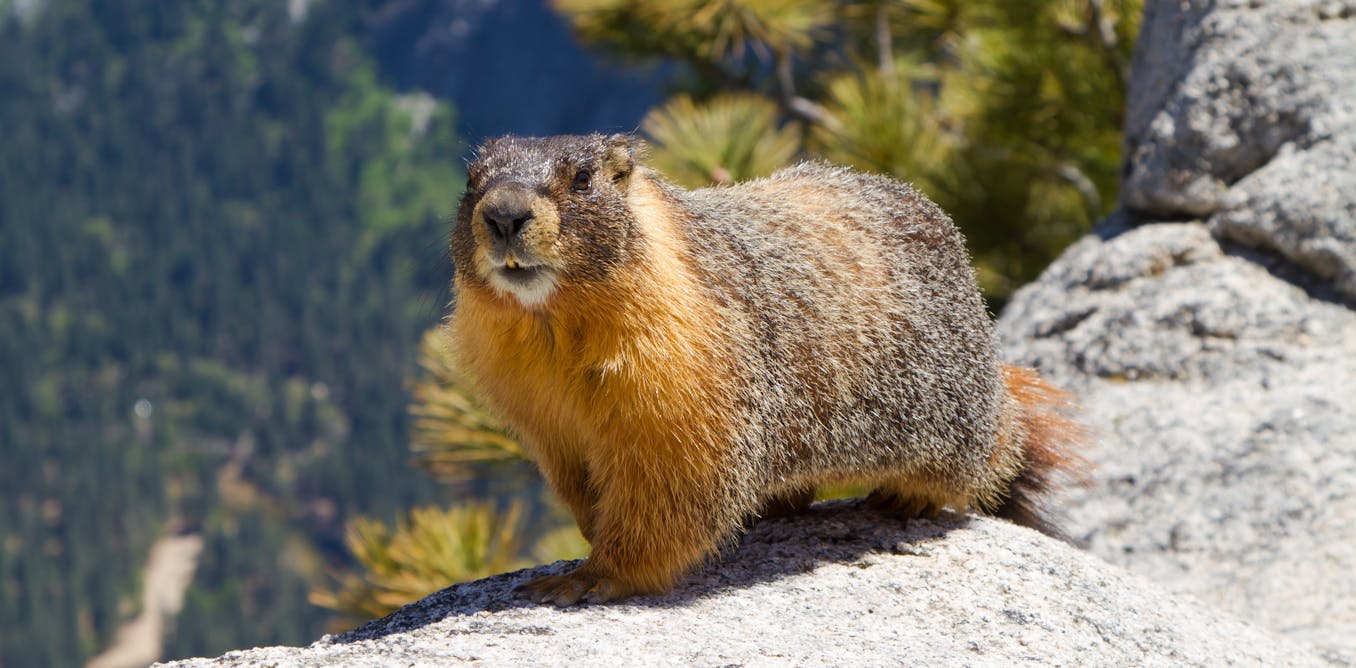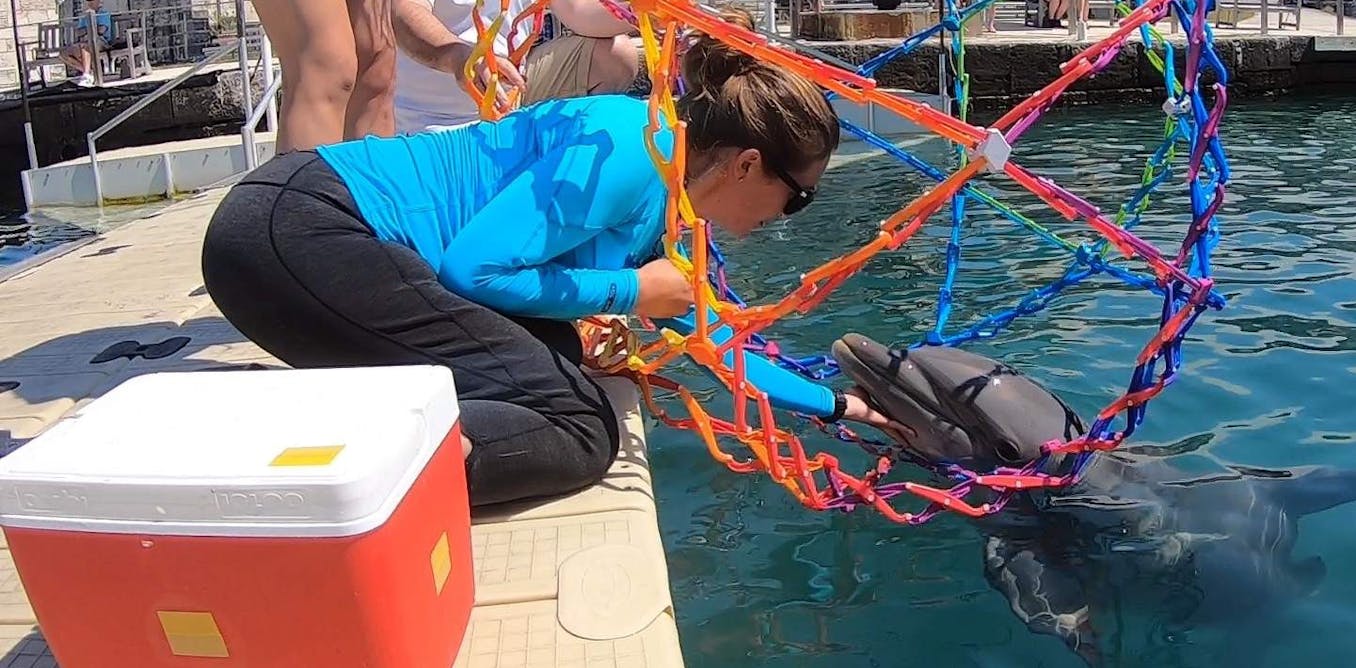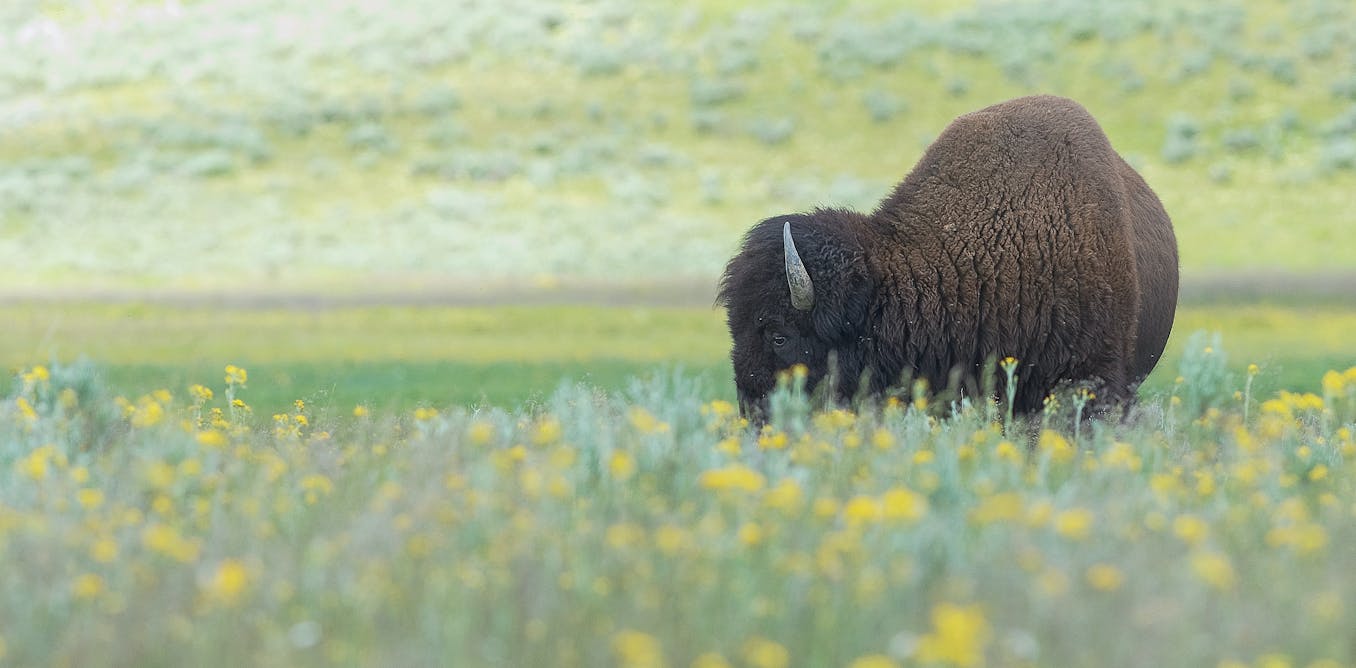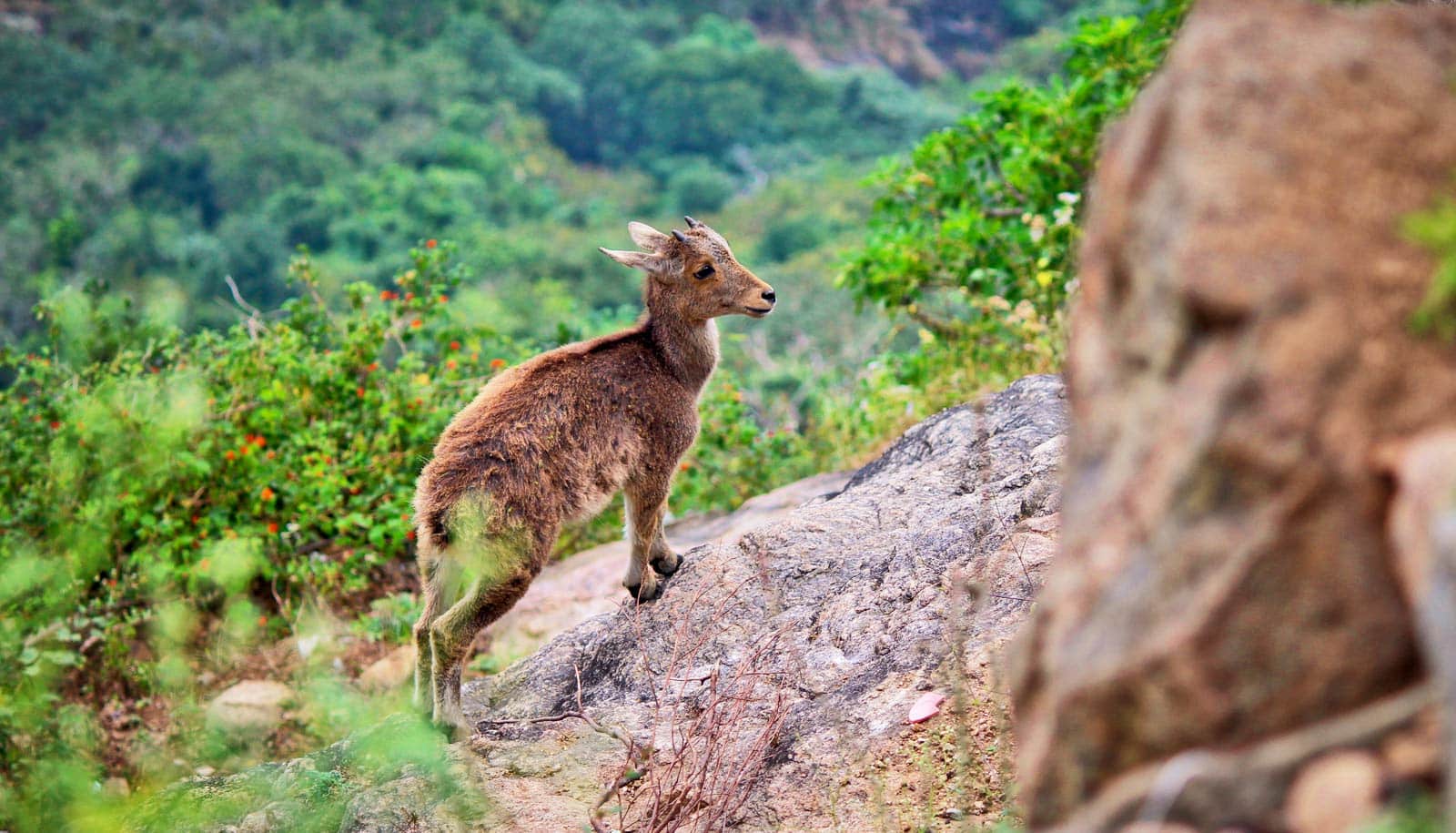Why some species thrive after catastrophe – rules for making the most of an apocalypse
When the dinosaurs went extinct, some species took over the world. Adaptability, not survivability, explains why.
July 20, 2020 • ~9 min
With the help of trained dolphins, our team of researchers is building a specialized drone to help us study dolphins in the wild
Wild dolphins are fast, smart and hard to study, but it is important to understand how human actions affect their health. So we are building a drone to sample hormones from the blowholes of dolphins.
July 1, 2020 • ~9 min
How bison, moose and caribou stepped in to do the cleaning work of extinct mammoths
The historical record is full of surprises – and it could encourage conservationists to think more creatively.
April 29, 2020 • ~6 min
Camera traps completed one of the most thorough surveys of African rainforest yet
A new method of using camera traps has brought good and bad news for conservationists.
March 31, 2020 • ~6 min
It's wrong to blame bats for the coronavirus epidemic
The value that bats provide to humans by pollinating crops and eating insects is far greater than harm from virus transmission – which is mainly caused by human actions.
March 24, 2020 • ~8 min
Harvard researchers examine how mammal spines evolve
Harvard Researchers show what drives functional diversity in the spines of mammal.
Feb. 3, 2020 • ~7 min
Mammalian vertebral columns may reflect pace of evolution
Researchers find clues to evolution in the intricate mammalian vertebral column.
Nov. 14, 2019 • ~4 min
/
11





